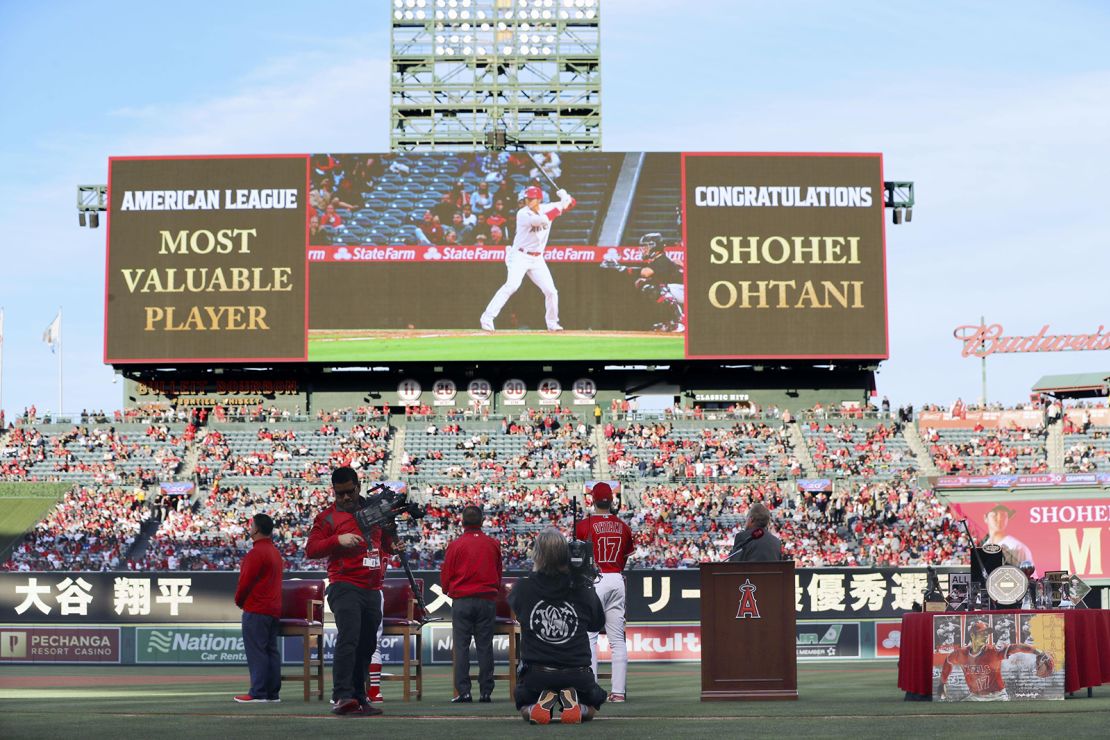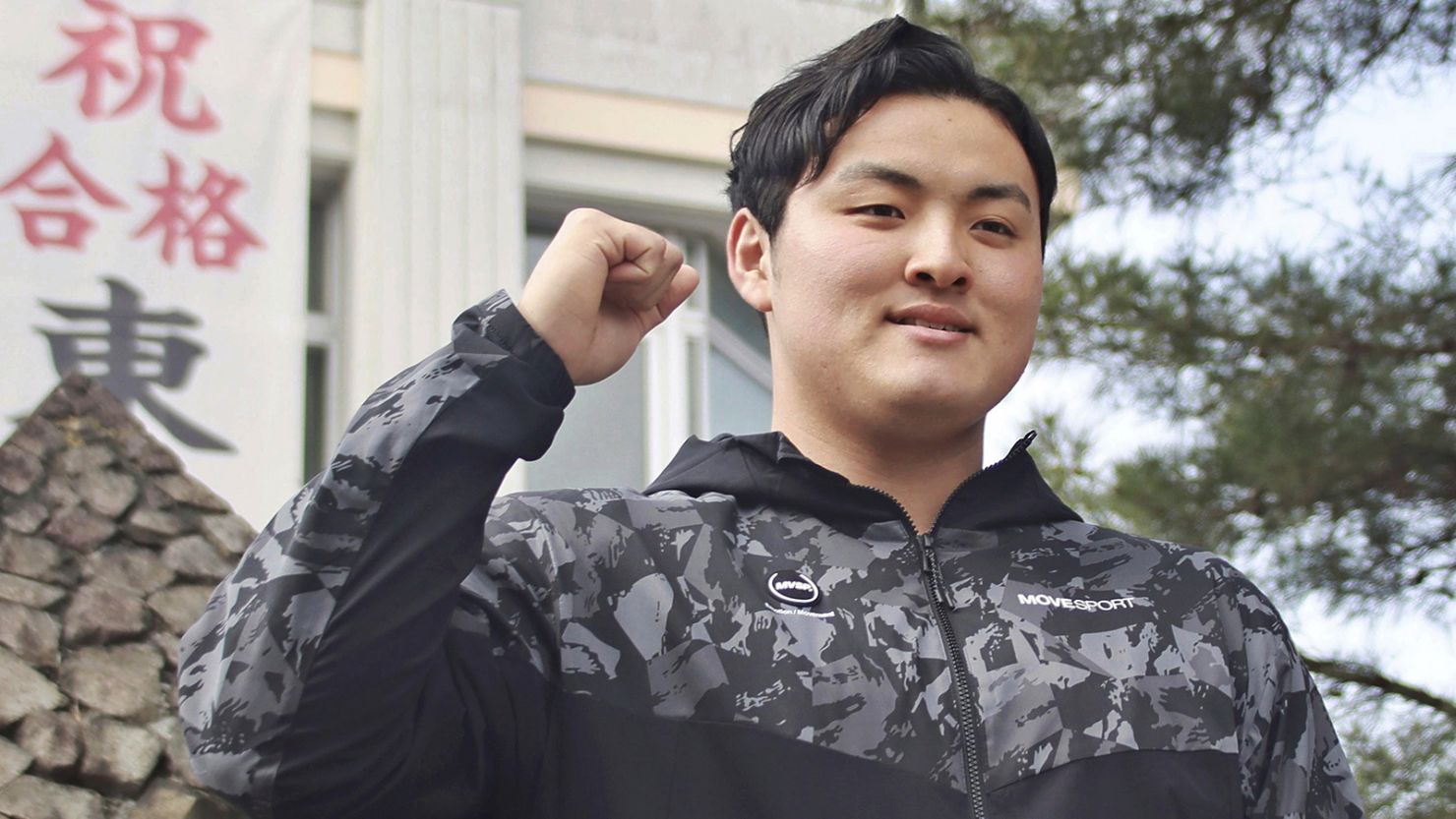At a school in Japan’s snowy northern mountains, reminders of distinguished alumni are everywhere. Banners herald Los Angeles Dodgers megastar Shohei Ohtani and Toronto Blue Jays pitcher Yusei Kikuchi, their faces greeting every visitor.
But now, Hanamaki Higashi High School celebrates a new prodigy in its midst – one whose high-school records beat even those of Ohtani and Kikuchi.
Raised in the sleepy town of Hanamaki, Iwate prefecture, Rintaro Sasaki doesn’t know a life without baseball, having grown up playing catch with both his sister and his father, who is a coach.
Once he joined a school known for its elite baseball team, he shared dormitories with teammates and was immersed in the sport – as well as in his predecessors’ towering achievements.
“The presence of legends like Shohei Ohtani and Yusei Kikuchi were a huge factor as to why I got into baseball – I fell in love with the sport,” Sasaki told CNN.
Now aged 18, he has already etched his name into the annals of baseball history with an astounding 140 home runs during his high school career, a feat which surpasses the legends he admires. He was the projected number-one pick for Japan’s professional baseball league.
But unlike his predecessors, Sasaki is charting a different course. Eschewing an immediate professional career, he is instead choosing education: from this autumn, he’ll attend Stanford University in California, with a view to top-level baseball after that.
“I think it could be a place where I can challenge myself in new ways. And I don’t just want to practice baseball, but also study to prepare for my second career when I eventually retire,” he said, drawn to Stanford by the expansive campus that felt like a slice of home and a coaching staff that promised a familial support system.
Sasaki said this pivot to academia was inspired by his father, Hiroshi, who doubles as his coach and the guiding force behind Hanamaki Higashi’s baseball program.
Hiroshi, who mentored Ohtani and Kikuchi before his son, sees in America a land where Rintaro’s unique talents can flourish.
“In Japan, people tend to focus more on shortcomings. But in the US, they develop individuality. I think this is a very good choice for him,” Sasaki told CNN.
Under his father’s tutelage, Sasaki has grown into a formidable talent. But for his son to stand shoulder to shoulder with Ohtani and Kikuchi, the coach said he needs far more practice.

Ohtani, who during the offseason signed baseball’s richest contract with World Series favorites the Dodgers, has won the American League MVP award twice over the past three seasons as a pitcher and designated hitter with the Los Angeles Angels.
“I had never seen such a level of athleticism before [Ohtani and Kikuchi]. I knew from the moment they entered the team that they would be tremendous athletes if they could build on their muscular strength,” Sasaki said, sitting in the same gym where the two athletes trained under his watch. He doesn’t take much credit for raising the two stars, saying they would’ve excelled anywhere.
Now, with the emergence of three baseball stars from Hanamaki Higashi, Sasaki’s teammates swell with pride at the honor of walking the same corridors.
“I admire them a lot. They’re so good that sometimes I wonder if they’re real humans—they’re on a different level,” one of them, Taichi Murakami, told CNN.
Despite its status as a public school with a modest baseball budget, Hanamaki Higashi has impressively produced three outstanding athletes. When asked the secret behind this success, Coach Sasaki says it’s not something mystical in the water—rather, a potent mix of rigorous practice and formidable mental strength.
“I think the most important thing is not to blame others and not to make excuses…The other thing I do is set firm goals,” he said.
As the younger Sasaki prepares for this next chapter, he carries with him the ethos of Hanamaki Higashi, a testament to the school’s remarkable legacy of nurturing baseball talent.
“One day, I want to be playing on the same field as Ohtani and Kikuchi,” he said. “That’s what’s driving me.”

